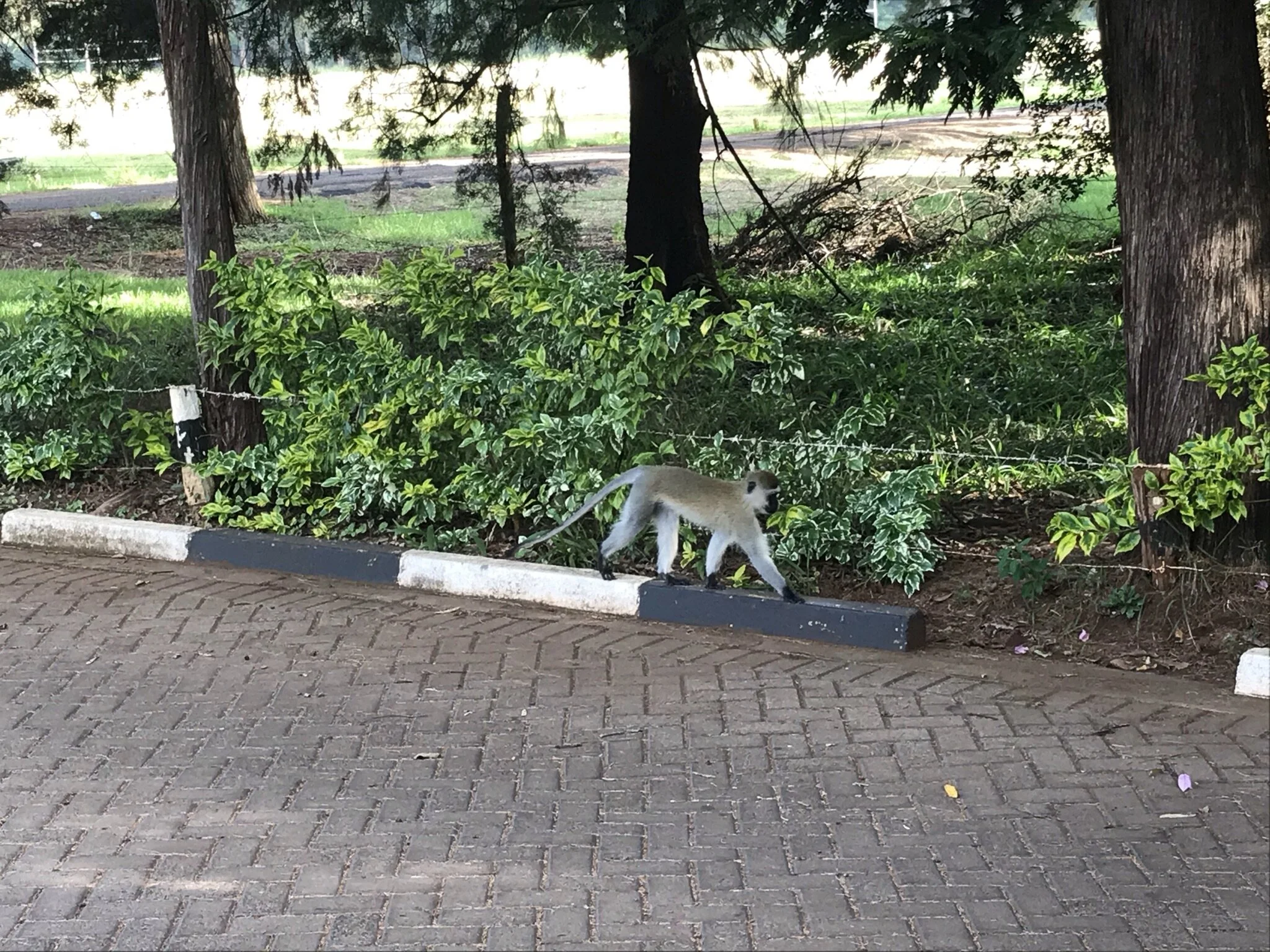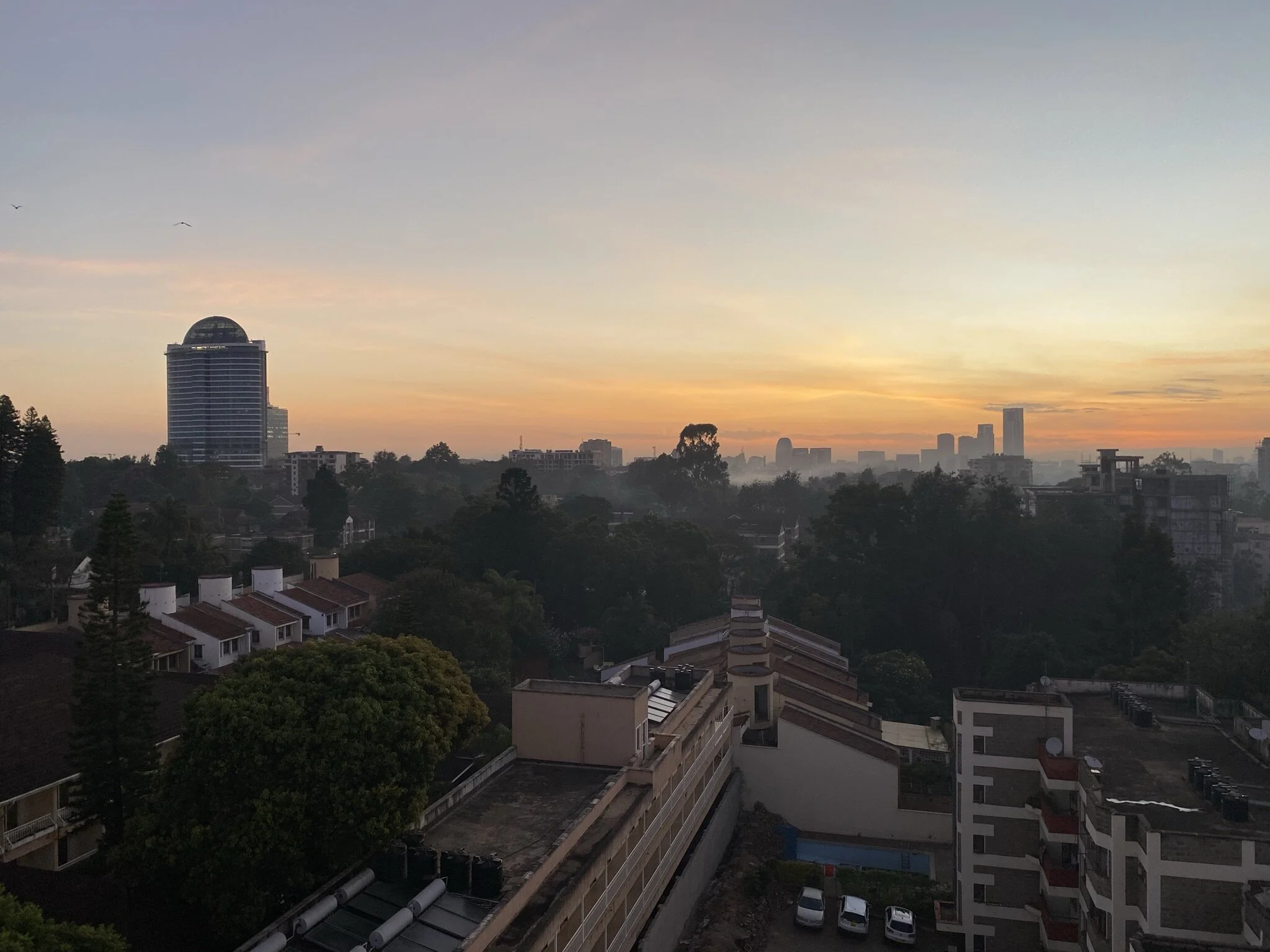Some of the most striking things to me from my first two weeks in Nairobi
The security guard at my apartment expressed a more nuanced understanding of American politics than 95% of people I’ve talked to in the US:
He asked what I thought of Donald Trump, and seemed surprised when I said I didn’t like him, because “Trump speaks to young men like you.”
Then he said that the most important thing is to unite people, and that Trump doesn’t unite people.
Later he was talking about how corrupt the Kenyan government was, and said he understands why Trump doesn’t want to send money to foreign countries anymore, because it doesn’t end up helping the people.
Relatedly, I know next to nothing about non-American politics, nor am I expected to. A Kenyan was impressed that I even knew the name of Kenya’s first president.
The relative lack of rules is so freeing! There are no sidewalks so you just walk wherever you want! The management of my apartment doesn’t forbid bringing bikes through the lobby, swimming at night, or drinking on the roofdeck!
There is a sense of activity about the city that I don’t feel in Chicago or Boston. Part of it is the construction that is going on all over the city, driven by the twin needs to reduce traffic and to clean dirty money (1). Part of it is the visibility of cooks outside food stalls and salespeople inside Safaricom huts (2) on the side of the road — you can’t help but see people at work when you walk down the street. Part of it is my impression (possibly only existing in my head) that the median person here has larger and more meaningful goals they’re dreaming about and working towards than the median person in the US.
There are wild monkeys in my neighborhood (vervets as near as I can tell).
There’s not a clear distinction “inside” and “outside” because the temperature is perfect and bugs are not a problem. Windows are always and doors are often left open.
What seem like crazy low prices to me have forced me to understand how low the cost of labor is here. A full lunch today cost me ~$1.10 (3). A 20-minute Uber ride is ~$2. Because the cook and the Uber driver don’t have some other job option they could take for $7.25 an hour, their time is very cheap in economic terms.
1. Nairobi is full of in-progress and newly-constructed high-rises which are themselves full of vacancies. These high-rises are kept deliberately empty. The “rents” that the owners collect from these empty units serve as a legitimate-looking source of cash. If my co-worker is to be believed, this money laundering is used to cover four types of illicit activity: mining from Sudan, drug trade from South America, corrupt government activity in Kenya, and oil production from the DRC.
2. Safaricom is a phone network and the largest company in Kenya (worth ~$11B and making up ~60% of the Nairobi Stock Exchange (to be fair, a pretty small stock exchange as far as stock exchanges go)). Safaricom runs M-PESA, the widely-used Kenyan digital payment system, and on what feels like every street you can find a green food shack that has a Safaricom sign. These are the equivalence of convenience stores, selling snacks, water, juice, and the ability to upload money to M-PESA via cash or credit card. Safaricom doesn’t own these stores, the store-workers are simply Safaricom agents in addition to being store-owners.
There are ~160k M-PESA agents in Kenya, many at stores like these. There are around 50M people in Kenya, so that’s 3 in every 1000 people, similar to Walmart’s employing ~5 out of every 1000 people in the US (though Safaricom agents are not full-time employees).
3. “today” being a word which here means “the day of writing, not the day of posting”

